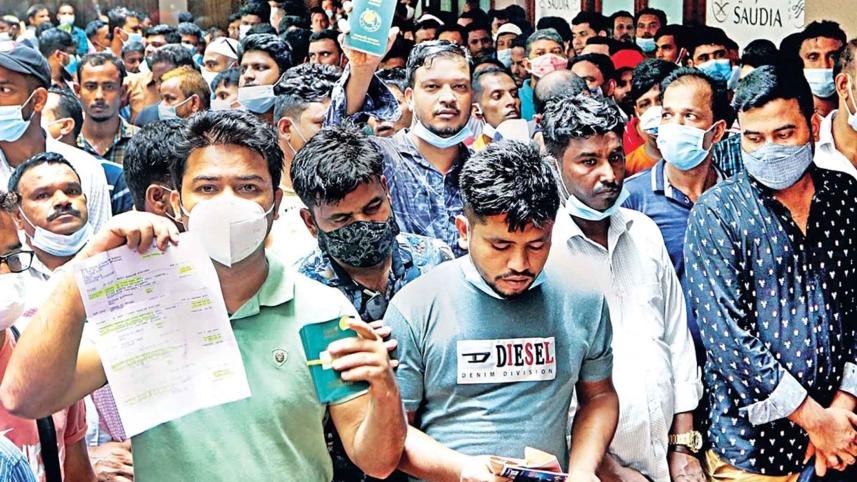KSA-bound workers to get vaccines, aid for hotel quarantine
have come sooner

We commend the expatriates' welfare ministry's decision to provide Tk 20,000-25,000 as aid for unvaccinated migrant workers who have to quarantine at hotels upon their arrival in Saudi Arabia. It is also reassuring to know that the vaccination of our remittance workers will get more priority than before, so that they may avoid the expensive institutional quarantine required by KSA and other countries.
According to a new travel advisory by the Kingdom (effective since May 20), Bangladeshi migrant workers will have to quarantine themselves in hotels upon arrival, for a week and at their own expense. Such a length of hotel stay would cost each worker Tk 65,000. For 40,000 such workers, the total cost would be around Tk 260 crores, as per the former vice president of Bangladesh Association of International Recruiting Agencies (Baira). Needless to say, the ministry's decision to provide financial aid to these workers (and to compensate those who have already flown to KSA and are paying for the hotel quarantine themselves) could not have come at a better time.
While we appreciate this prompt move by the authorities, we also believe any sufferings of the migrant workers could have been avoided had the government put them on its priority list of Covid-19 vaccine recipients beforehand. As per the current travel advisory from Saudi Arabia, those who have been fully vaccinated at least 14 days prior their arrival would not be required to quarantine at a hotel. Baira itself had urged the government to prioritise the vaccination of migrant workers as they were set to fly there for their jobs. Due to this lack of foresight in planning the vaccine priority list, at least 1,000 migrant workers had failed to book hotels in KSA and missed their flights between May 25-28. Though it is refreshing to see the authorities trying to right this wrong, we would urge them to have more foresight in the future when it comes to protecting the country's migrant workers. It is often disheartening to see the government praising remittance workers' enormous contributions to our economy and simultaneously displaying their disregard for these workers when it comes to serious issues such as vaccination against Covid-19. From here on, we hope to see the authorities be prompt in their responses to such crises, so that our valuable remittance workers can be prioritised and protected, not just compensated.



 For all latest news, follow The Daily Star's Google News channel.
For all latest news, follow The Daily Star's Google News channel.
Comments